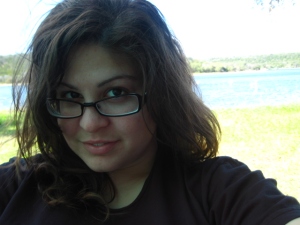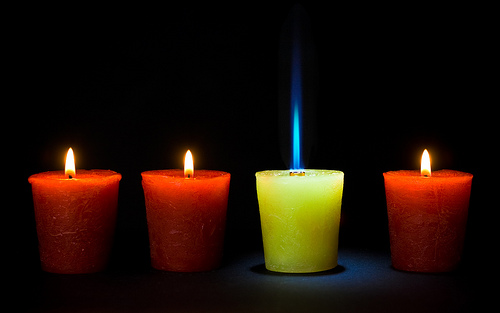
Acres of Internet space have already been devoted to this topic, because it’s a tough one. There are as many solutions as there are people who want to write, so there is always room for one more blog post on the topic.
In this 3-post series, I’m going to give you some thoughts, some links and some tools, to help inspire you to find time for your writing.
TIME FOUND UNDER SOFA CUSHIONS!
There is a reason you never see that headline. Time is never found. Time is made, cadged, scrimped, stolen, begged, borrowed, spent.
There is always something else you could be doing. Always. The trick is, finding ways to make time for the things that really matter to you.
Make Tough Sacrifices
I’m saying this first, to get it over with because it sounds awful, but you will have to make sacrifices if you want to make writing a priority. Some of these sacrifices will be hard.
Today I turned down a walk with a friend, which I know would have been lovely. Sometimes a walk with a friend is the perfect thing to boost your creativity. But for me, this week, it would eat into the only clear time I have to Get Stuff Done. Some of that stuff is mundane, household stuff, but part of that Stuff is Writing & Writing Prep.
No matter how nice that walk would have been, I had to say ‘no’. Next week, I’ll budget my time differently to make sure I can say ‘yes’.
Make Easy Sacrifices
Some things will be easy to give up, or at least good for you.
Me? I overeat. When I’m stressed or bored I head for the pantry and strap on the nosebag. It uses up time and leaves me comfortably numb. But if I’m serious about my writing, I resist the nosebag, make light, healthy meals and get back to my notebook. Good for productivity and good for my heart.
An ‘hour long’ TV show is actually 42 minutes of content. The rest is commercials. Why not record your favourite shows or download them from iTunes? Even if you still watch two shows in an evening, you could carve out 36 minutes for writing just by watching it commercial-free and still get to bed at the same time.
What changes could you make, even if occasionally, to create more time for the thing you really love to do?
Accept That You Can Write In Bursts
You don’t need long swathes of time in which to write. In fact, that can be bad for productivity. As someone who has suffered prolonged bouts of enforced inactivity (lack of a work visa, looking after small children) I can tell you that more free time does not make writing easier. You just get more creative with your excuses.
Jamming in 250 words here and there on your commute — a 1000 if you’re lucky on a lunch break — keeps your writing feeling like a treat, not a chore.
Plus, it’s how most full-time writers started. Stephen King wrote after shifts at the laundromat. Scott Turow wrote bits and pieces while working as for the US Attorney’s office. Most ‘literary fiction’ writers have quite demanding schedules teaching at colleges and conferences. Even if they do get to take a semester off to finish a novel, they can hardly wait for inspiration to strike during that one precious semester.
Accept That You Can Write In Big Long Jags
If you do get the chance to write in a big binge on the weekends, go for it. Don’t feel guilty. Some people spend hours watching sports every Sunday. Do what you enjoy; what makes you a better person. Negotiate with family/friends for writing time if you have to, and write as fast as you can for as long as you can, whenever you get the chance.
Separate Your Thinking Time and Your Writing Time
On that note, don’t put off thinking about your story even if you don’t have time to sit down and write. When do get some writing time, you want the ideas to be flowing. You can think about the next plot development while you are doing any menial task (of which we all have plenty).
But do try to focus. It’s hard to stop your mind wandering off to the sequel or what you’ll do with your wealth when people are using your name where they used to use Stephen King’s. Rein it in. Focus on the next scene, the next bit of dialogue, the next plot twist. Make notes if you have to. Better yet, commit the ideas to memory, then you’ll be turning them over and over until it’s time to write.
Then, when you do carve your 36 minutes out of the evening’s schedule, your fingers will be twitching. You’ll be ready to jump right in.
Scare Yourself Straight
If you find yourself frittering your time away on Facebook or Twitter or in front of the TV when you know you could be writing, take an excellent piece of advice from Jon Scalzi:
“Think of yourself on your deathbed saying, “well, at least I watched a lot of TV.”
Take a moment now. Picture it. Use that fertile imagination of yours.
If you aren’t already sweating, then maybe there is a whole other reason why you can’t and won’t find time to write.
And that’s OK, too. Maybe you’re really a reader, a critic, an enthusiastic conneseur of the narrative form. Join a book group or a film society and have fun with your life. Just stop beating yourself up about not finding time to write.
But if you’re a writer, make time. You’ll never “Find” It.
Am I being glib? Smug? Wrong? Have you found things that work for you? Tell me in the comments.






